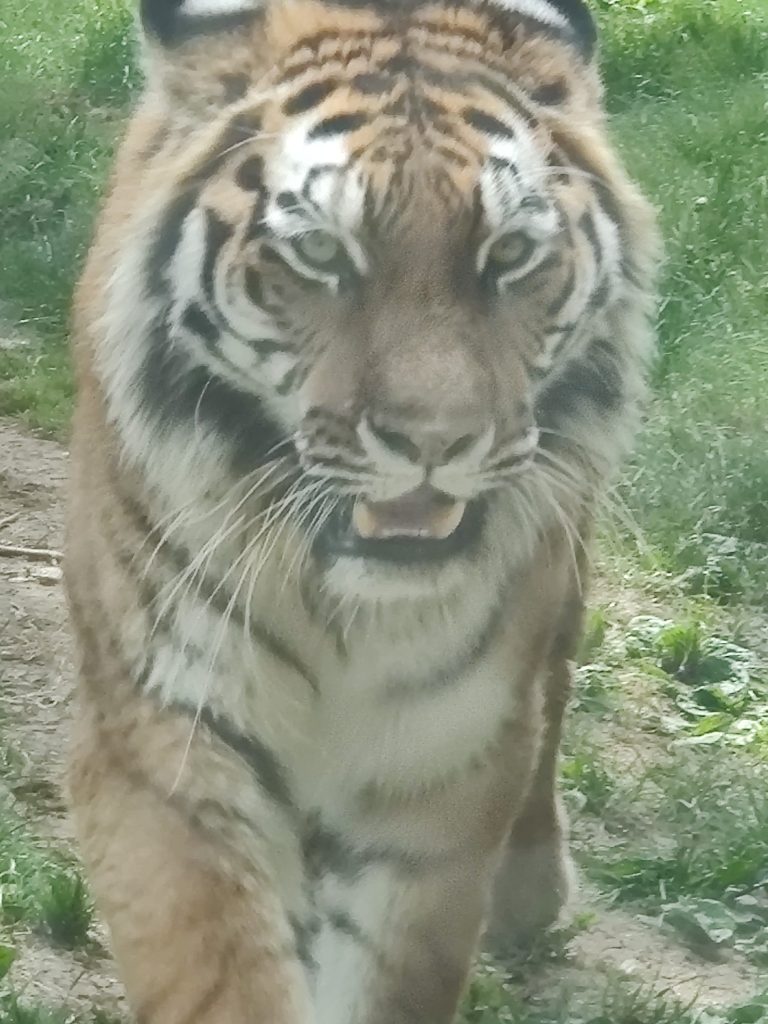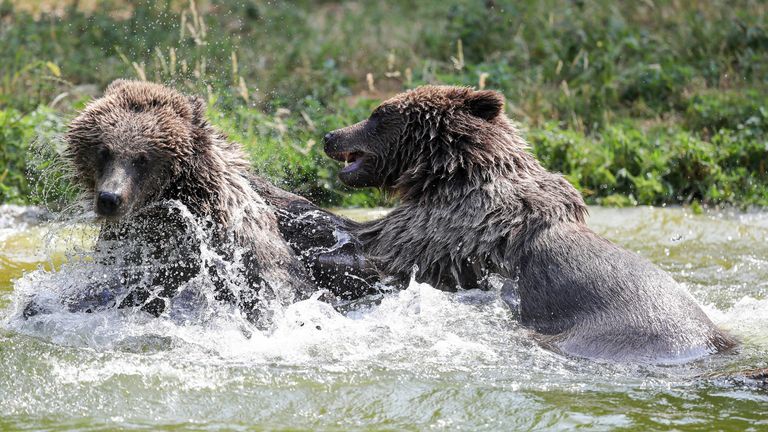If you live in the UK, there is relatively little wildlife to watch (when compared to somewhere like South Africa), which is why zoos are often such popular places.

As people have come to have better thoughts about keeping animals in zoos, these places have greatly improved. Long gone is enclosures such as “bear pits”. Now zoos give the animal relatively large enclosures with (as much as possible) plants and other items that make the area similar to the animals wild habitat. Also a great deal of progress has been made in understanding the various conditions that are required in order to make the animals happy enough to breed.
I have, in the past, been a wildlife educator at the zoo. This has consisted of me visiting the zoo a few times each month, and spending a few hours beside specific animals. I am there to engage visitors – in some cases help them see the animal, as well as talking about its wild habitat and the threats that the animal faces to its ongoing survival. Due to covid, this has been impossible in the last few years.
Marwell zoo has been particularly good on its big cats. Unfortunately since our last visit, they have lost their Amur leopards and their cheetah – however, as with both of these, the animals were old, and the zoo is perfectly set up for breeding of these species, therefore if new cheetah or Amur leopards arrive this can continue. One of the main ways that these zoos can work in this way, is to have two enclosures next to each other, this allows the connecting gate to be opened or closed depending on circumstances, allowing male and female to spend times apart and together – as close to mirroring how they would behave in the wild as possible.
The Amur leopard is a stunning animal and with its wild population being so threatened (a superb decade has allowed the population to grow back above 100 (WWF estimates that there are now about 100 wild adult Amur leopards) from a population of as few as 20 adults at the turn of the century. As such breeding is essential, and I hope that in the long run, the zoo can have similar success with another pair. Cheetah, while less endangered overall (though the Saharan cheetah and the Iranian cheetah are both this endangered) is famously hard to breed, so we can only hope that in the future cheetah will once again live in this place.
When visiting a zoo, I like to go on a very quiet day, as the animals tend to behave more naturally so I like to go outside weekends. However with children that is not currently possible due to school. Nevertheless we had a lovely day, and despite the missing wildlife saw many lovely things.
Whether you believe that animals should ever be caged or not, it should be clear to everyone that at the current time, without zoos many species might well be lost from the world. It is also true that many zoos do essential work in the wild to conserve remaining wilderness.



